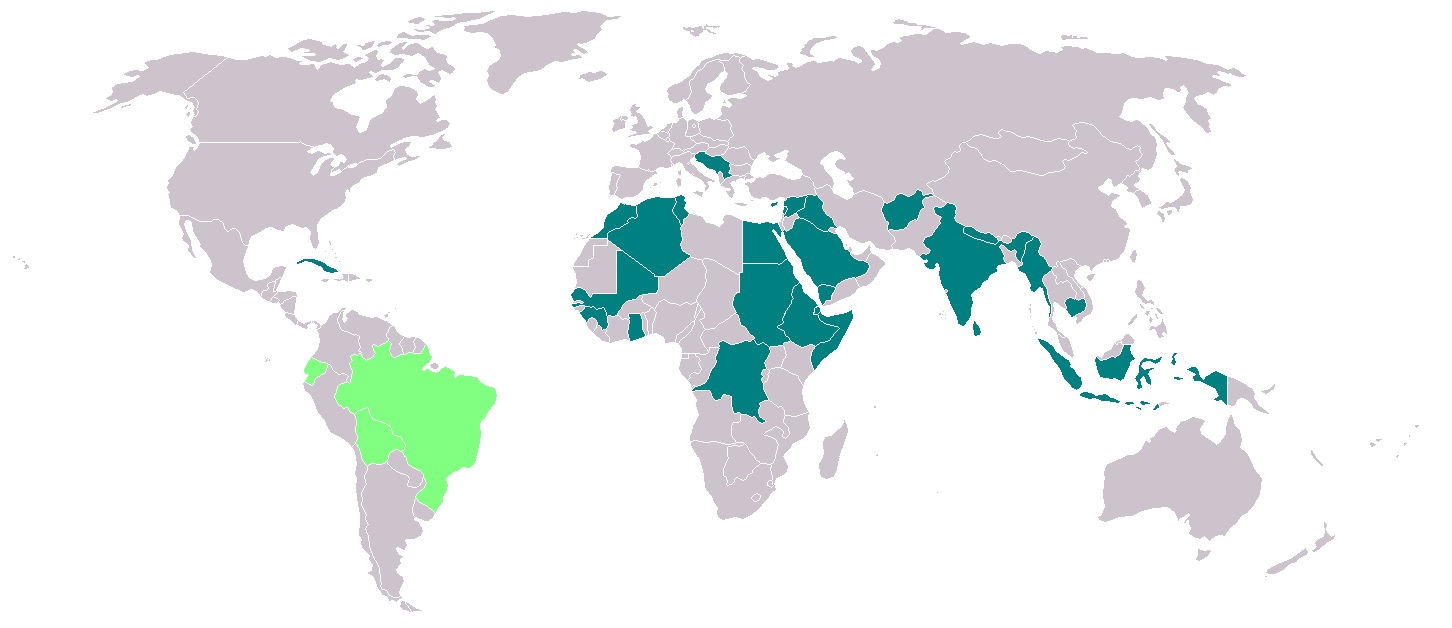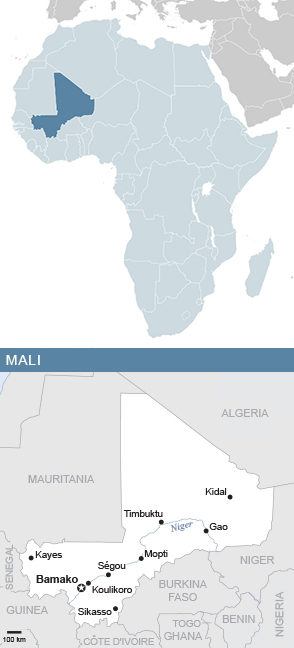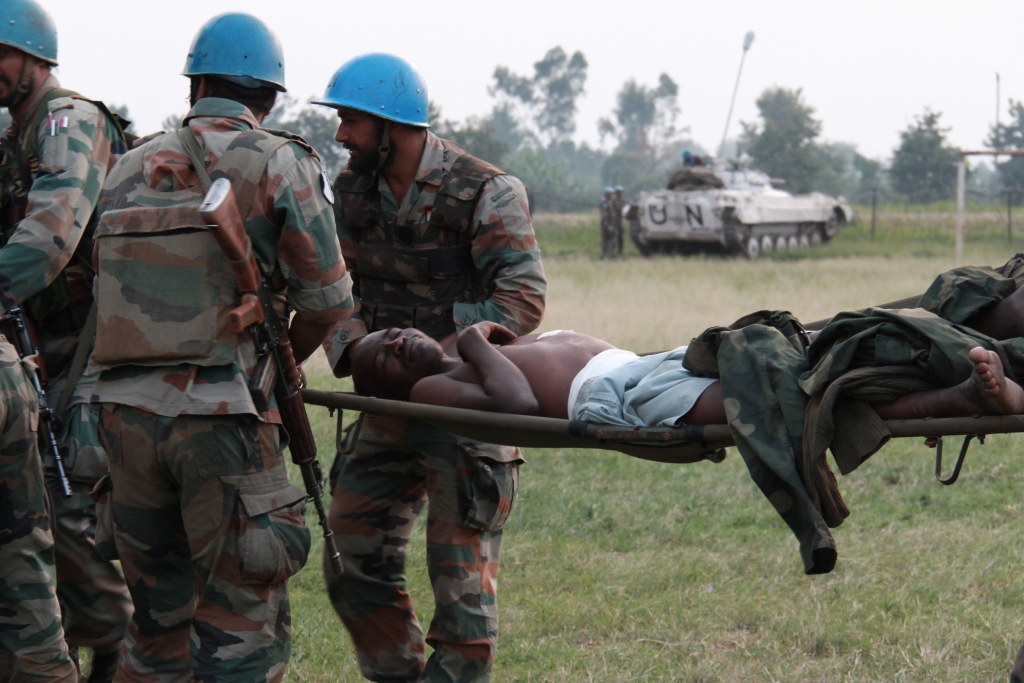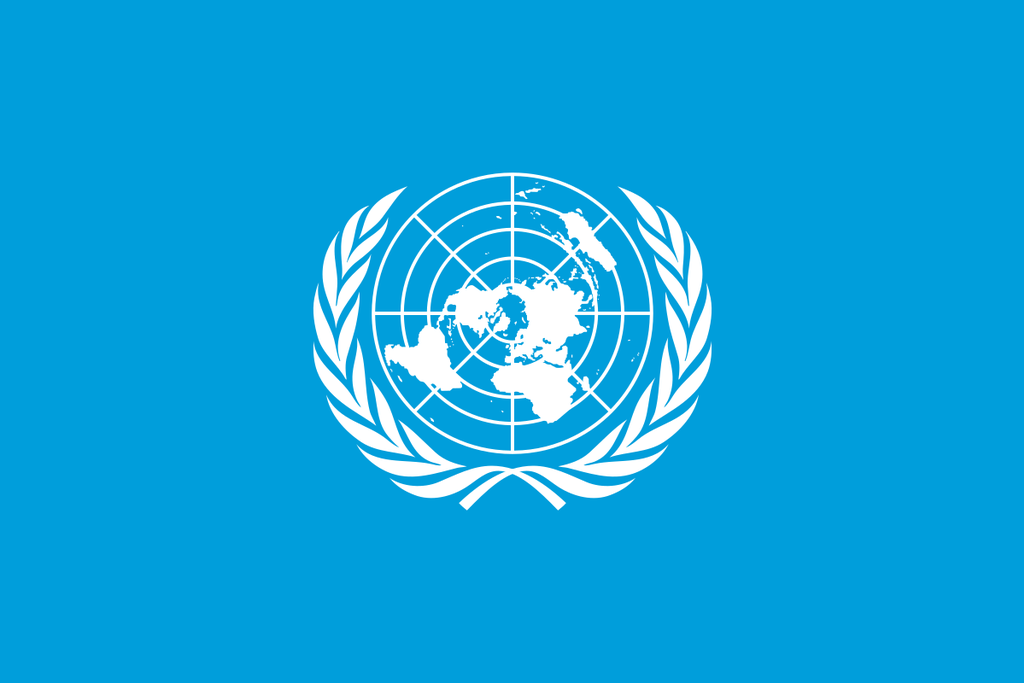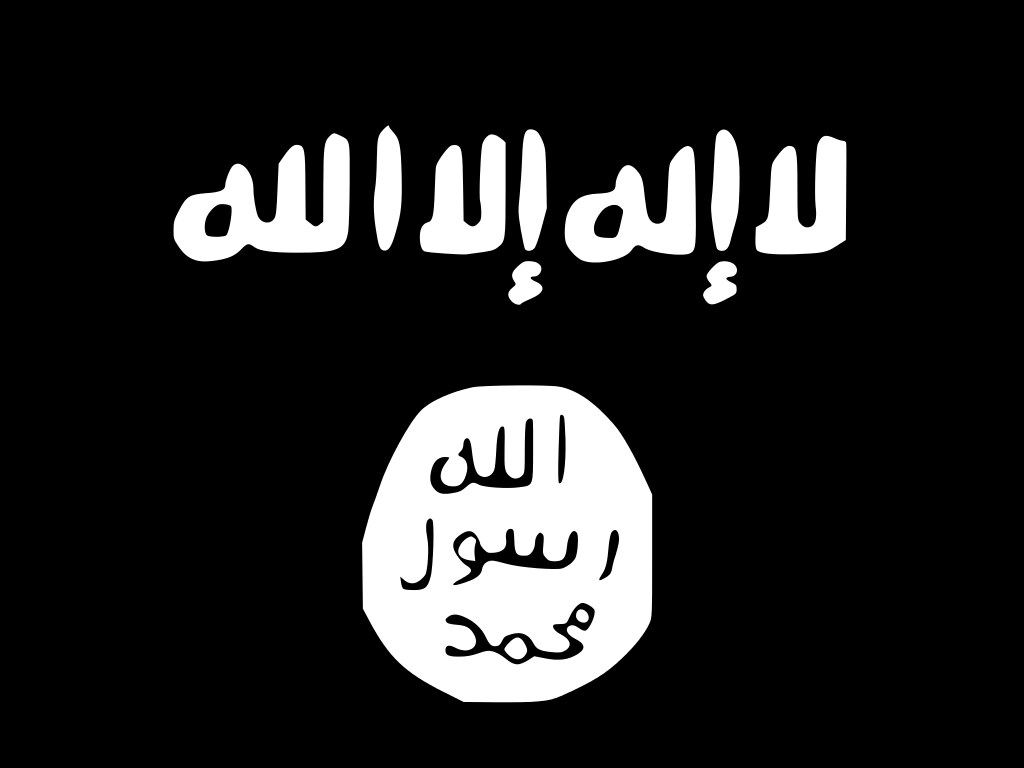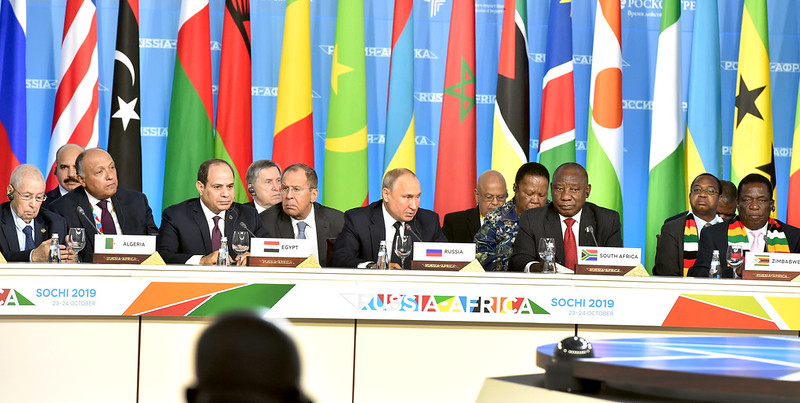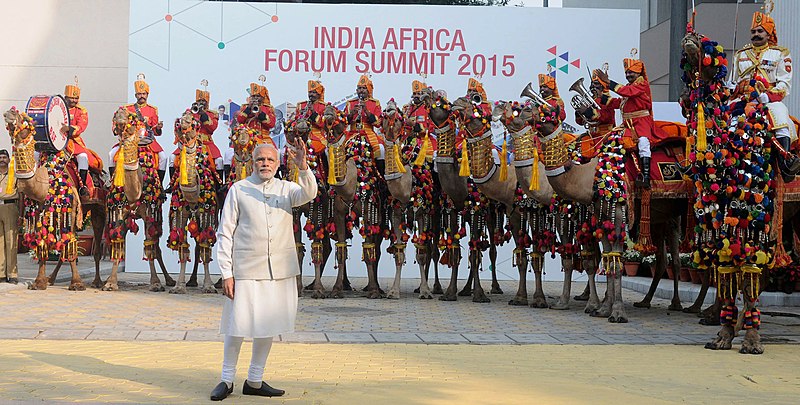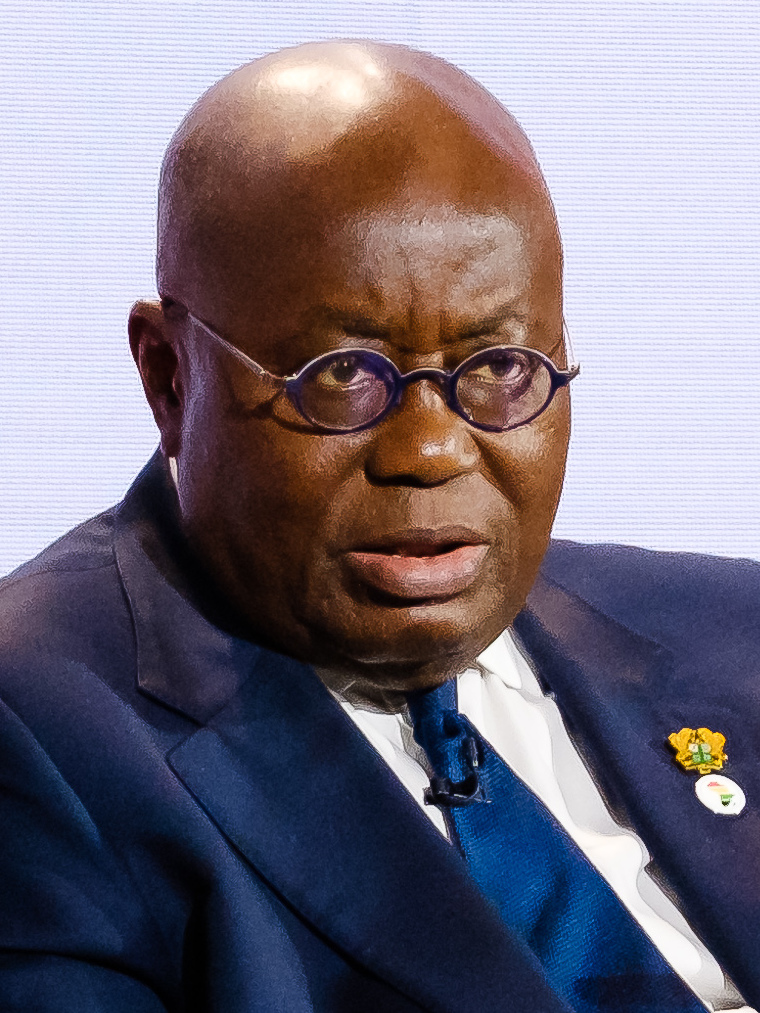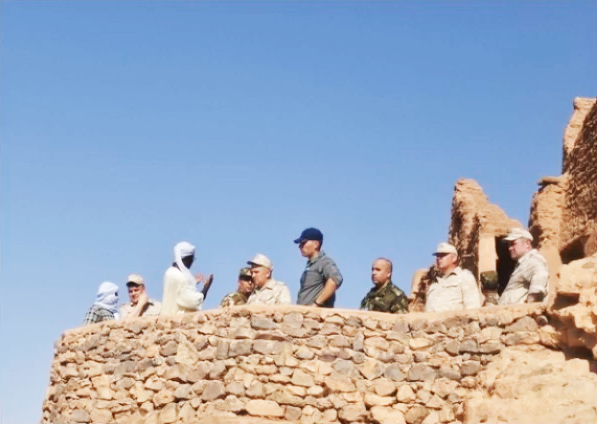
Algeria hosts final planning conference for joint Russian-Algerian exercise Desert Shield 2022.
“Algeria clings to the principle of non-alignment.”
While Russia appears to be courting Algeria in a bid to reduce its isolation, Algeria is keeping its options open by engaging with both Russia and NATO member states. In January 2023, the Algerian government announced that President Abdelmadjid Tebboune would visit Moscow and meet with President Putin in May 2023.[i] At the May 2023 presidential summit, Russia is hoping to sign a new strategic cooperation partnership document with Algeria, if for no other reason than to make the case that Russia is not fully isolated and retains key strategic partnerships. In addition, Russia seeks to finalize a major weapons deal to show that its military export industry remains viable. The deal would be centered on the Su-57 [GRLCUT(1] stealth multirole fighter aircraft, according to the second article excerpt from the Russian-language news network RT Arabic and other news stories regularly recycled by Russian Arabic language media over the past year. Indeed, Russian expectations for the presidential summit are high, and its media and officials are going out of their way to flatter Algeria: as detailed in the first excerpted article, in an early February interview with RT Arabic, Foreign Minister Sergey Lavrov said that, in trying to turn Algeria against Russia using pressure, the West was “messing with the wrong guy.”
Algerian leadership, however, seems less enthusiastic about a singular deepening of relations with Russia: quite the opposite, judging by recent Algerian diplomatic activities. A week before the January announcement that he would visit Moscow in May, President Tebboune hosted Italy’s prime minister and discussed expanding bilateral trade, of which Algerian gas supplies to Europe via Italian pipelines are a centerpiece. Concurrently, Said Chengriha, the Chief of Staff of the Algerian armed forces, led a large delegation to Paris, where he was received by President Macron, met with several high-ranking military and government officials, and signed a security cooperation “roadmap” on his government’s behalf, as reported in the second accompanying excerpt from the Algerian monthly military journal El Djeich. Shortly after returning from Paris, Chengriha hosted U.S. Africa Command (AFRICOM) Commander Gen. Michael E. Langley, where he reiterated Algerian non-alignment and commitment to dealing “with many friendly countries,” including the United States, as reported in the third accompanying piece, a Facebook post from the Algerian Ministry of Defense. Algeria remains an appealing security partner for Russia, given its strategic location on NATO’s southern flank and the historical links between the Algerian and Soviet militaries; however, Algeria is unlikely to sacrifice its substantial commercial relations with Europe. Indeed, except for arms deals, Russian-Algerian trade remains negligible, and Europe’s embargo on Russian natural gas may ultimately benefit Algerian gas exports. Still, the fact that Algeria continues to value its partnership with Russia will force its government to carefully balance existing relations and new entreaties from both Russia and NATO countries. If Algiers continues to successfully navigate these competing pulls, its approach may well emerge as a model for other Arab countries seeking to do the same, most notably Saudi Arabia.
Sources:
لافروف: الولايات المتحدة تحاول إملاء سياستها على الجزائر لكنها “هاجمت الشخص الخطأ”
(Lavrov: The United States is trying to impose its policy on Algeria, but it messed with the wrong guy),” RT Arabic (Russian Arabic-language media outlet), 1 February 2023. https://tinyurl.com/yjwsfakc
In response to a question about whether Western pressures will affect the Algerian authorities’ policy towards Russia, he added, “We have a popular saying that says, ‘You messed with the wrong guy’. Algerians can’t be told what to do in this manner, you cannot expect them to comply with and implement directives that contradict their national interests based simply on a hand signal from across the ocean. Algeria, like most countries, is a country that respects itself, its history and its interests, and draws its policies on this basis.”
هل تحصل الجزائر على مقاتلة روسية تتبع 60 هدفا في وقت واحد؟
(Will Algeria obtain Russian jets that can simultaneously track 60 targets?),” RT Arabic (Russian Arabic-language media outlet), 1 February 2023. https://tinyurl.com/2uautj98
Russian media reported that Algeria might become the first country to possess the fifth-generation Russian Su-57 fighters, as talks were held with Russia at the end of 2020. There is talk of at least 14 aircraft being involved, scheduled for delivery before 2030.
“Monsieur le général d’armée, Saïd Chanegriha, chef d’état-major de l’Armée nationale populaire, en visite officielle en France (Army General Saïd Chanegriha, Chief of Staff of the National People’s Army, on an official visit to France),” El Djeich (Algerian armed forces monthly magazine), February 2023. https://rb.gy/levz2
The talks examined ways of strengthening military and security cooperation between the two countries. Subsequently, the meeting was formalized by the signing of a joint roadmap.
No title. Algerian Ministry of Defense Facebook Page, 8 February 2023. https://www.facebook.com/mdn.gov.dz/posts/505345958434848“I would like to emphasize on this occasion that Algeria clings to the principle of non-alignment, and jealously guards its history full of glories and heroism, as well as its independence and sovereign political decision-making. It interacts in a way that serves its own interests and deals with many friendly countries with which it has military and economic relations, such as the United States of America.”
Notes:
[i] Although officially neutral vis-à-vis Ukraine, the Algerian government has been accused of aligning with Russia due to its abstention on UN votes condemning the Ukraine invasion and the extensive bilateral high-level security contacts that followed the invasion. The deepening partnership was to be bolstered by two much-anticipated late-2022 events: joint anti-terror exercises on Algerian soil in October (“Desert Shield 2022”), and the Algerian president’s Moscow visit, which was supposed to occur before the end of 2022. In the end, the exercises were unceremoniously called off at the last minute, and the 2022 presidential visit has now been rescheduled for May 2023, though a firm date has not been set. For added context see: Lucas Winter, “Algeria Caught Between Neutrality and Strategic Relations with Russia,” OE Watch, 5-2022. https://community.apan.org/wg/tradoc-g2/fmso/m/oe-watch-past-issues/415497
Image Information:
Image: Algeria hosts final planning conference for joint Russian-
Algerian exercise Desert Shield 2022.
Source: https://rb.gy/zgyvr
Attribution: CC BY-SA 4.0

